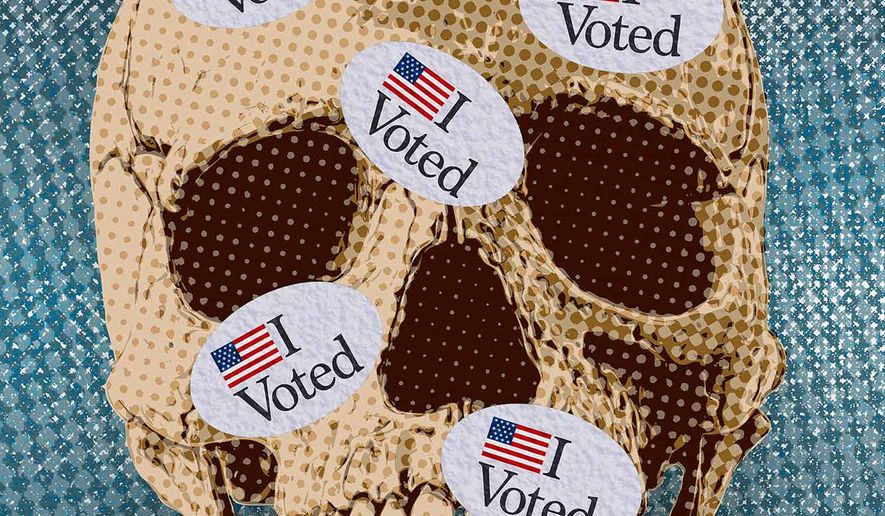OPINION:
There’s quite a lot that the United States could learn from the way France conducts its elections.
France is a large, well-established democracy with nearly 50 million registered voters – more than twice as many as California, our most populous state. Yet, France is able to count its votes much faster than California and does not suffer from the complexity and lack of transparency that plague American elections and force American voters to question their trust in state and local election officials – most of whom are overseen by partisan offices.
In France, people vote the old-fashioned way. They present photo IDs and sign their names. Then they stand behind a curtain, mark their choices on a paper ballot, place the ballot in an envelope, and then place the envelope in an actual ballot box.
That method of voting used to be standard practice in democracies all over the world. But over the years, many countries (including the U.S.) have introduced layer after layer of complexity to the voting process, usually in the interest of speeding up the tabulation of results or making it easier for people to cast their ballots. These innovations have accomplished their immediate purposes – Americans have grown accustomed to staying up late on Election Night to learn who will be our next president, and in many states, voters can choose from a variety of methods to cast their ballots.
But in the process, we’ve done away with many of the traditional safeguards that ensured the integrity of our democratic process. In the pursuit of convenience and immediate satisfaction, we’ve steadily eroded the basic underpinning of our constitutional republic - the integrity and equal treatment of the ballot.
The American Voter’s Alliance (AVA) is dedicated to restoring public confidence in the integrity of our elections, and we believe that modeling our elections more closely along the lines of French elections would go a long way toward achieving that goal.
Vice President Kamala Harris has spoken of the need for the United States to serve as a “role model” of healthy democratic governance. But right now, our country is a laughingstock. In our haste to relieve people of the inconvenience of standing in a line or waiting patiently for election results, we’ve demolished many longstanding barriers to fraudulent activity, opening the door to ballot trafficking, stuffing of ballot boxes, and voter intimidation.
The U.S. Agency for International Development identifies three key principles for evaluating the integrity of foreign elections: transparency, accountability, and inclusion. Right now, we simply don’t pass the test. Our voting process is opaque; it’s extremely difficult to even investigate potential voting crimes, much less prosecute them; and as we saw in 2020, it’s easy for billionaires to tip the scales by working with local election officials to confer advantages on certain demographics of voters that are not available to other voters.
Any fledgling democracy looking for an example on which to model their election process would do far better to look to France than America. In France, there are far fewer opportunities for fraud because there are no mail-in ballots and vanishingly few voting machines. And if anyone does have reason to suspect that fraud occurred, it’s a simple matter of recounting the paper ballots.
AVA recognizes the importance of minimizing barriers to voting so that all eligible voters can participate, especially voters with disabilities or other hardships that make voting difficult, but this must be accomplished while still ensuring that the process is fair and honest, from start to finish.
France has demonstrated what many Americans are claiming is archaic and impossible - the feasibility and functionality of voter ID and the paper ballot. We must restore faith in the election process and France has shown us a way forward.
* Jacqueline Timmer is the founder and director of the American Voter’s Alliance, a nonprofit grassroots voter education group focused on election integrity.




Please read our comment policy before commenting.